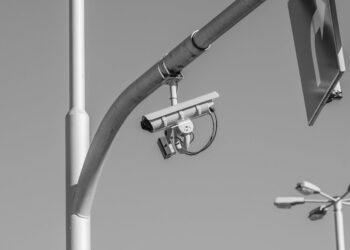Even when you try to be thrifty, you may still be finding it difficult to afford all of your monthly expenses and also manage to put some of your earnings towards savings. Review these five ways to build more breathing room into your budget and grow your savings.
Work Towards Reducing Debt and Interest Obligations
Outstanding debt can really hinder your spending power. If you’ve accumulated a substantial amount of debt from student loans or credit card interest, it may be a good idea to consider consolidation. This is a far better option than simply paying the minimum amount due every month and letting balances climb higher or remain at a standstill.
It might also make sense to get a personal loan with a lower interest rate to pay off debts with higher rates. The interest rate attached to a loan could be significantly lower than the interest on credit card debt, so it may be possible to spend less every month or eliminate debt faster.
Seek Out the Best Financing Opportunities for Major Purchases
If you have to make a purchase costing several thousand dollars or more, avoid charging it to a line of credit with high interest. Big purchases are tough enough to budget for without tons of interest built in. Make it a point to do a fair amount of due diligence on the best financing options available.
When you’re financing something from a service provider, bear in mind that you don’t necessarily need to use the financing source that the provider has partnered with. For example, if you want to use financing to get a new HVAC system, you might not have to get the financing directly from the company that sells it to you and performs the installation. Likewise, you can seek out competitive auto loan rates online rather than choosing from a list of one financier at a dealership.
Mind Your Credit Score
Being able to qualify for good lending opportunities and sign-up incentives on new credit accounts may depend entirely on the state of your consumer credit score. Be sure to check it regularly so you can catch mistakes and track your progress.
To boost your credit score, chipping away at outstanding debt could be a huge help. You’ll also have to be diligent about making timely and complete payments on all of the obligations reflected in your credit report’s active tradelines. Keep your total credit utilization under thirty percent because using up too much of your available credit can weigh down your score.
Make a Budget and Stick to It
To stay organized about spending, you’ll need a fixed budget to work with. Budgeting isn’t just a concept. To know whether you’re really staying on budget every month, you have to quantify your expenses with substantive dollar amounts rather than ballpark figures.
If you haven’t written out your monthly budget before, try using a budgeting app to help. A good budgeting app will guide you through itemizing your largest ongoing expenses. Housing, transportation, and medical care are among the first costs that you should account for.
You’ll also need to include line items for recurring costs that vary such as food and utilities. You can create approximations by reviewing your previous banking activity. Going forward, your budgeting app will help you closely track how you’re doing with variable costs.
Structure Savings Into Your Budget
There should be a line item in your budget for savings. Putting aside a little bit of money every month will make it much easier to afford the things that you hadn’t budgeted for but absolutely need to buy right away. Bear in mind that even modest deposits can really add up over time, so resolve to deposit a fixed amount into a savings account every month.
When you’re stressing out about money, getting organized can be a big confidence booster. Ultimately, developing habits that help you conserve your resources and save money consistently could have a significant impact on your long-term financial health.







